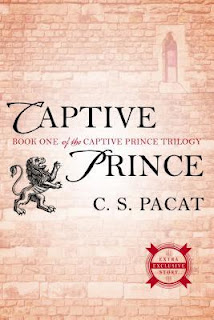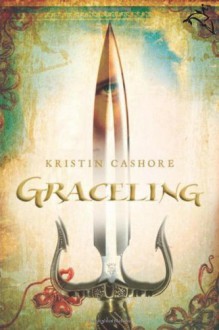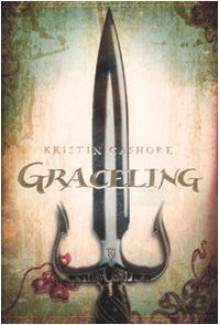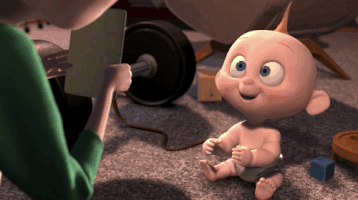I’ve talked on and on before about how fantasy is my favorite genre. I’m more likely to be drawn into reading a fantasy novel than any other, and some fantasy novels have inspired me as a writer too. Yes, I like to write. I’m a writer and a reader and a blogger. For the five authors I fangirl over, some of the commonalities include: a.) character-oriented fantasy; b.) mostly third-person narratives; c.) plots that go beyond the ‘lost prince trying to reclaim throne’ type; d.) complicated characters, plots, everything. And of course, the fact that I feel like my mind is getting bigger while reading their books.

1. KRISTIN CASHORE:
I think that one of the most interesting things about Kristin Cashore’s Seven Kingdoms series is that they’re all so different in terms of plot, though they’re all high-concept works that go waaaaay beyond their simple description (“a young queen must help her country heal after the destructive reign of her psychotic father” could describe Bitterblue but doesn’t get at any of the novel’s complexities). Probably the simplest, most typical coming-of-age of her books is Graceling, but that was her debut novel, and I think that ever since then, she’s been working on adding more and more complexity into her works. For me, she was the first author I’d read in YA fantasy who was also very much writing character-oriented fantasy. After reading her work, I feel like I can’t go back. I can’t read much plot-based fantasy—they’ll never be my favorites compared to the ones that put character first. The ones where the questions and themes and symbols of the series are embedded into the characters—and yeah, plot-based fantasies can do this, but comparatively, it’s a lot harder to add in the same level of complexity into the characters compared to the actual events of the plot. Kristin Cashore is the YA fantasy author who also gets mentioned in almost every YA fantasy comparison (“Graceling meets XYZ”; “For fans of Kristin Cashore”), and that’s for good reason.

2. MEGAN WHALEN TURNER
I’ve basically already fangirled hard over The Queen’s Thief series by Megan Whalen Turner. If you follow that link, you’ll get the full sphiel on why I loooooove that series and fangirl over MWT in full, but for now… If I learned how to write high-concept character-oriented high fantasy from Kristin Cashore, I would learn how to write a high fantasy centered on a character that’s like a living legend from Megan Whalen Turner. (If this sounds familiar, that’s because Sarah J. Maas, among many others, was inspired by the Queen’s Thief series). I also think that of all the authors here, MWT probably has the *most* layered into each scene of her books, particularly as you go further into the series. The most in the sense that no scene will ever be just what it is on the surface; you might have a scene where a guard is confronting his peer, but there’s a lot more meaning embedded into the narrative and particularly how that scene contributes to making the main character, Eugenides, even more of a living legend. Yet, for all that the series shows his change in fortune, it never once fails to humanize him. Many fantasies alternative PoVs within a book so that you can relate to different characters; the Queen’s Thief series shows that you don’t need to do that to give a character complexity, but the choice of PoV and what that perspective adds are definitely questions to ask. We don’t always get the main character’s point of view, and he’s not always the main character of the book in question, but there’s no doubt that each book is adding to his character arc and that is the major one tied to the series arc.

3. C.S. PACAT
C.S. Pacat is not a YA fantasy author as of this moment. The Captive Prince trilogy is very much meant for mature readers (but I listened to an interview with her and it sounds like she might be writing a YA fantasy right now—so maybe we’ll hear more from her in the future). I first learned about the Captive Prince trilogy from Emily May at the Book Geek; I was intrigued, but I wasn’t sure if I should add onto my TBR—especially given its heavy sexual violence. Then Sarah J. Maas recommended the books, and my feed was full of the books again. So I decided to read the beginning, and I got hooked by the promise of the characters. As this article on the Female Gaze explains, one of the crucial elements in her books is this shifting of the default to homonormative. In her world, people shudder so much at the idea of bastard children that most relationships are with the same sex. And it got me thinking about how most fantasy novels, and novels in general, fail “to realistically portray sexual dynamics that do not exist in response and relation to traditional heterosexual relationships.” (The article goes over much more than that). C.S. Pacat has written novels where the default has shifted and made me consider—well, hey, why don’t more novels do this? This is something to always keep in mind while world-building. Plus, she’s ALSO amazing at adding in many layers to each scene and creating complex, multi-layered characters; they have a certain vitality, to the point where despite not knowing what Laurent would plan next or what other comradery scenes would come next for the army, I can picture the characters.

4. MAGGIE STIEFVATER
Maggie is the most different of the authors on this list because I wouldn’t technically call her work high fantasy (though if The Scorpio Races is on a fictional island and the society is different from ours with its water horses, why can't it be called high fantasy? finally high fantasy that doesn't equate to medieval patriarchal times...). Regardless, if C.S. Pacat has taught me about the defaults in world-building and characterization, Kristin Cashore about high-concept character-oriented high fantasy, and Megan Whalen Turner about layered plotting centered around a living legend, Maggie taught me the importance of atmosphere, of mood and feeling within a scene, and how those can work to achieve characterization in conjunction with the other elements I've mentioned. Maggie has talked about how she likes to think about her writing as 'moving stuff around in a reader's brain',' which creates a specific effect for each scene (and also each image for her characters). And reading the Raven Cycle, I feel that magic is real. I feel like I'm with her characters, experiencing the wonder of the forest, the creepy delight of trees speaking in Latin. That's a rare gift to find in a lot of fantasies, which prize political intrigue over readers being in the moment with the character.

5. MARIE RUTKOSKI
Finally, Marie Rutkoksi is a mastermind when it comes to introducing symbols within each scene. In The Winner's Curse, Kestrel agrees to something her father says, and he pats her cheek with his dirty hand. That dirty handprint is a wonderful symbol -- for the characters and modern associations. We might think of a "devil's bargain" caked onto Kestrel's face. Her father working with dirt, with his weathered hands; Kestrel wandering around the house, so focused on finding Arin that she doesn't look to see if there's dirt on her face -- so much to be said about the characters. It's just such a strong image! It stayed with me for a long time. And feeling like you're trapped in, marked so strongly by something you agreed to -- I as a reader can really relate to that feeling. In The Winner's Crime, Kestrel is eating desert with a sugar spoon during her dinner with a certain character (maybe the first chapter?). A sugar spoon, specially made, speaks to the luxury of her dining companion and his staff, the amusement and terrible waste of making a spoon that you can only ever use *once*. It also brings to mind the modern phrase of 'eating out of a silver spoon' -- except that this token of privilege is made of sugar. Still, it characterizes Kestrel well, and sets a dark foreboding tone for the rest of novel, given its place at the beginning. The spoon tastes sweet at the beginning but then by the end of the meal, it has dissolved into nothing (which, btw, matches really well with what Kestrel says at the end, no?). And note: those were only 2 images! One for each book! There are so, so many more in The Winner's trilogy.
All of these authors do amazing things with their novels. If you're a writer, especially a fantasy writer, I'd suggest reading their works for yourself to see how they've manipulated these different elements. If you're a reader who doesn't like to write, well, I'd still suggest reading these authors's works because they're brilliant. Are any of these authors among your favorites? Who do you fangirl over, and whose work makes for good lesson material for writers?


 Log in with Facebook
Log in with Facebook 















